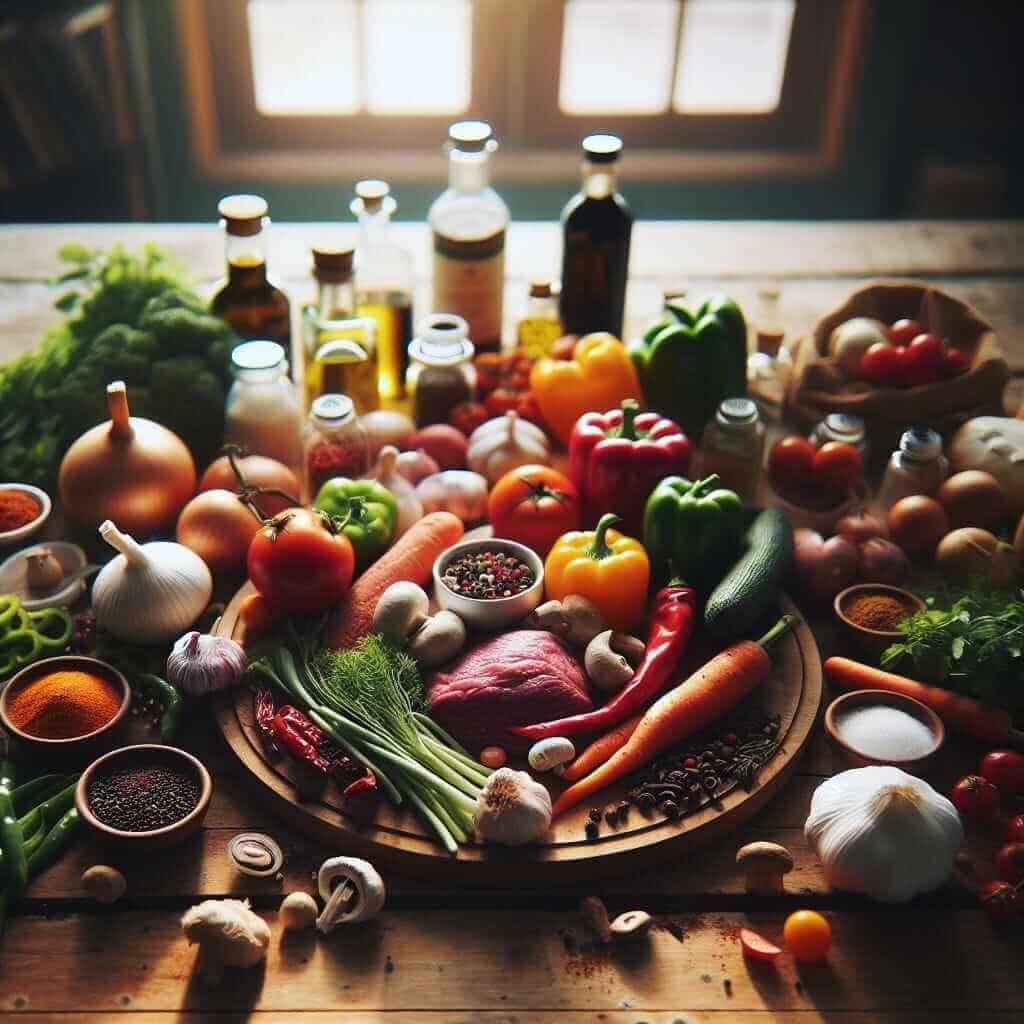As an IELTS instructor with over 20 years of experience, I often get asked about unexpected topics that might pop up in the Speaking test. One such topic is cooking. You might be thinking, “What does cooking have to do with IELTS?” Well, the truth is, being able to discuss your culinary skills can actually be quite advantageous. Let’s explore why.
Why Talking About Cooking Can Boost Your IELTS Speaking Score
While you won’t be judged on your Gordon Ramsay-level expertise, discussing cooking demonstrates several key skills the IELTS Speaking test assesses:
1. Vocabulary Range and Fluency
Talking about cooking allows you to showcase a diverse vocabulary related to:
- Ingredients: From exotic spices like turmeric and saffron to everyday staples like flour and eggs, you can demonstrate your knowledge of food-related words.
- Cooking Methods: Do you prefer to sauté, bake, grill, or steam? Using varied verbs to describe cooking processes highlights your lexical resource.
- Describing Tastes and Textures: Is the dish savory or sweet? Crunchy or creamy? Using adjectives to describe food experiences impresses examiners.
2. Coherence and Cohesion
Discussing a familiar topic like cooking can help you speak more naturally and confidently, leading to better coherence. You can easily structure your response by:
- Sequencing: Describe the steps involved in a recipe in a logical order, using linking words like “first,” “then,” “finally.”
- Giving Examples: Illustrate your points with specific examples of dishes you enjoy cooking or ingredients you like to use.
- Expressing Opinions: Share your personal preferences and reasons why you enjoy certain cuisines or cooking styles.
3. Cultural Awareness
Food is an integral part of any culture. By discussing your cooking experiences, you can demonstrate:
- Knowledge of Your Own Culture: Talk about traditional dishes from your home country and their significance.
- Openness to Other Cultures: Share experiences of trying new cuisines or adapting recipes from different parts of the world.

Sample IELTS Speaking Questions & Tips
Here are some ways cooking-related questions might arise in the IELTS Speaking test:
Part 1:
- Do you like cooking?
- Tip: Even if you don’t cook often, focus on what you enjoy about it – perhaps trying new recipes or the satisfaction of creating something delicious.
- What kind of food do you like to eat?
- Tip: Be specific! Instead of just saying “Italian food,” mention a particular dish you love and why.
Part 2:
- Describe a dish you enjoy cooking.
- Tip: Structure your response using clear points. Talk about the ingredients, the process, why you enjoy cooking it, and perhaps a memorable experience related to the dish.
Part 3:
- What are the advantages of learning to cook?
- Tip: Think beyond just the practical benefits. Discuss how cooking can be a social activity, a way to connect with your culture, or a form of stress relief.
Final Thoughts: Don’t Be Afraid to Spice Things Up!
Remember, the IELTS Speaking test is about demonstrating your communication skills, not showcasing your culinary expertise. So, relax, be yourself, and don’t be afraid to “spice up” your answers with personal anecdotes and engaging language. Your examiner will be impressed by your ability to communicate effectively and authentically, whether you’re a master chef or just learning to boil an egg!